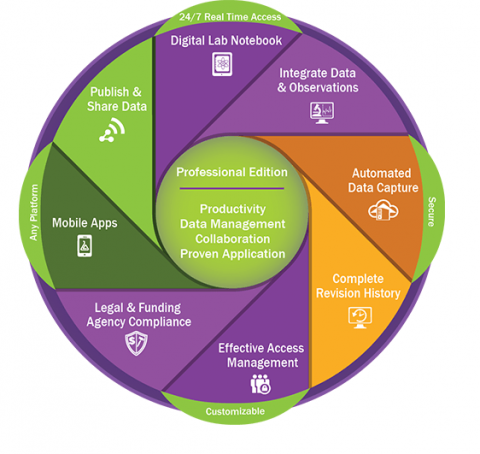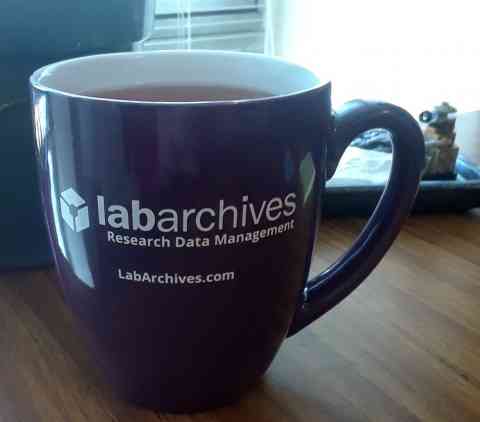
So, it got really cold this week. Really cold. I moved here from Knoxville, Tennessee in July after having lived down there for five years, and while I promise it does get cold down there, this is a whole level of chilled that I wasn't prepared for. If you see a librarian walking around campus with simply not enough winter gear (yet) and shuffling towards the warmth of Hunt Library, that's me!
By this time, dedicated readers of Tartan Datascapes can probably recognize that I am unabashedly passionate about research data management. Okay, I get it - it's not always seen as the most thrilling topic. But, hear me out: RDM is really a beautiful thing! Y'all are doing amazing research that will inevitably engage with data in some form, even folks in fine arts, philosophy, and humanities (data are much more diverse than we give them credit!). Helping you develop techniques for managing all your data so you can keep doing your fascinating research is what drives me each day working for CMU Libraries. So, when I learn about tools that help researchers manage data, you can guarantee that I'm going to be interested! I am thrilled to be dedicating this week's issue of Tartan Datascapes to LabArchives, a cloud-based electronic lab notebook platform for collaborative research data management & interactive lab coursework. LabArchives provides features which allow for easy collaboration and lab management and offers secure, well-documented, and version controlled notes on data collection and analysis. While optional features are designed with certain disciplines in mind, the platform can be used across any area of research (yes, this includes the social sciences and humanities!). The platform even works on several different devices, including in mobile apps. This image from the LabArchives team highlights many of the use cases and capabilities:

We at CMU Libraries are thrilled to announce the launch of a campus-wide institutional license to LabArchives! All CMU faculty, staff, and students can login now using their Andrew ID and selecting CMU as their institution at https://www.labarchives.com. We are pleased to offer free access to both the Professional Edition for research as well as the Classroom Edition for teaching. ![]() LabArchives already has significant adoption by researchers and instructors across campus, and with our new institutional license, anyone with an existing account will be able to transfer their account to the free CMU edition of the platform without losing access to any notebooks.
LabArchives already has significant adoption by researchers and instructors across campus, and with our new institutional license, anyone with an existing account will be able to transfer their account to the free CMU edition of the platform without losing access to any notebooks. ![]() LabArchives also offers integration with your CMU Box account and with Canvas. You can read more about our institutional license at https://www.library.cmu.edu/labarchives/about.
LabArchives also offers integration with your CMU Box account and with Canvas. You can read more about our institutional license at https://www.library.cmu.edu/labarchives/about.
Now, I am all about handwritten notes and paper notebooks. They are a great way to capture my thoughts when I'm on-the-go or in meetings! But, it's not so great when I spill tea all over them and ruin the notebook (believe me, it happens more than I'd like it to. Many of my notebooks are no longer with us thanks to Earl Grey tea). While these are just my own personal notes, this would be about 100x more catastrophic for me if these were lab notebooks used in my research or for a class. In my own research, I'll be using LabArchives to both consolidate all my research notes and findings, but to also protect from tea spillage and other incidentals. There's also some fascinating use cases for LabArchives in an educational setting right here on our very own campus, which I'll do a dedicated feature on in an upcoming issue of Tartan Datascapes.
We are incredibly fortunate to have the support of the LabArchives team, who even travelled to campus last week to attend our 2019 Open Science Symposium and facilitated several campus-wide trainings on using LabArchives in research and education settings! Their team has a super cool blog here that features use cases across different institutions, guidance on setting up your notebook(s), and highlights of research using the platform. They can also be found here on Twitter (@LabArchives). Word on the street is that they also bring some cool swag with them whenever they visit campus, including pens and some particularly awesome mugs, which I'm currently using to drink some excellent Lapsang Souchong tea:

Image description: Hannah's LabArchives mug, and yes, that's a Dalek sandbox in the background.
At CMU Libraries, myself and several other members of the Open Science Program team have been receiving extensive training on LabArchives, and we're excited to start working with campus researchers and educators to support use of the platform! Remember, I have an open door/open inbox policy - if my door is open in Hunt Library 410A, you can always stop in with questions, and my inbox is always open for questions, consultations, and resource sharing. I can visit your classes, labs, department meetings, or even meet for coffee in one of our several lovely cafés to chat over your research needs and engagement with data. Have questions about using LabArchives in your own research? Send me an email!
Important Happenings in Research Data Management at CMU Libraries:
We have a very exciting lineup of free workshops coming up at CMU Libraries (click here to see our full list of workshops for the remainder of the semester), many of which can help you learn new tips and tricks for data collection, analysis, and management. Here's a few that have a particular Tartan Datascapes-flavor:
![]() Cleaning Messy Data with OpenRefine, Thursday, November 21st from 10:00am-11:30am in the Sorrells Library Den (click here to register!)
Cleaning Messy Data with OpenRefine, Thursday, November 21st from 10:00am-11:30am in the Sorrells Library Den (click here to register!)
![]() dSHARP Gerrymandering Series: Finding & Using Data for Elections Research, Monday, November 25th from 4:00pm - 5:00pm in the Sorrells Library Den (click here to register!)
dSHARP Gerrymandering Series: Finding & Using Data for Elections Research, Monday, November 25th from 4:00pm - 5:00pm in the Sorrells Library Den (click here to register!)
And of course, please email me at hgunderm@andrew.cmu.edu if you'd like some help on your journey as a researcher/scholar/awesome human being here at CMU. Remember, we all use data, regardless of our discipline. If you think something might be data, you are likely correct and I can help you develop good habits for managing it! If you'd like to have your research data featured on Tartan Datascapes, please fill out this Google Form to get in touch!
